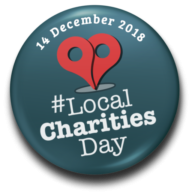The Charity Commission for England and Wales is the regulator of charities in England and Wales and is a non-ministerial government department.
The Charity Commission for Northern Ireland is the regulator of charities in Northern Ireland.
The Office of the Scottish Charity Regulator (OSCR) regulates Scottish charities, including those that operate only in Scotland.
This section will provide you with an overview of what UK Charities are, what they do, and how they are regulated.
What to send to the Charity Commission and how to get help
How to Become a Charity Commissioner in the UK
The role of a charity commissioner is to ensure that charities are complying with the law and that they are not breaching any regulations.
A charity commissioner has to be aware of the latest changes in legislation, so they need to be flexible and willing to update themselves with the new laws.
The Role of The Charity Commission In The UK’s Society
The Charity Commission is a regulatory body that oversees the work of charities in England and Wales. It was founded in 1853 and has been granted a Royal Charter.
The Charity Commission’s role is to make sure that charities are working in the right way, complying with charity law, and to be able to investigate any concerns or complaints about charities that are brought to their attention.
The Charity Commission is responsible for regulating the following types of charities:
- Charities registered in England and Wales;
- Charities registered with the Commission but not yet operating in England or Wales;
- Overseas charities operating within the UK;
- Charities which have ceased operation.
What Requirements Do I Need To Be A Commissioner For Charities?
In order to be a commissioner for charities, you need to have empathy and passion for the cause. You will also need to be able to work well with people in the charity sector.
You should also have a good understanding of how charities are structured and what they do. It is important that you are able to identify which charities are best suited for your skillset.
You may also like:
- Find and Give at Local Charities in Your Area
- How to Choose the Right Charity Furniture Pick up Service for Your Area



